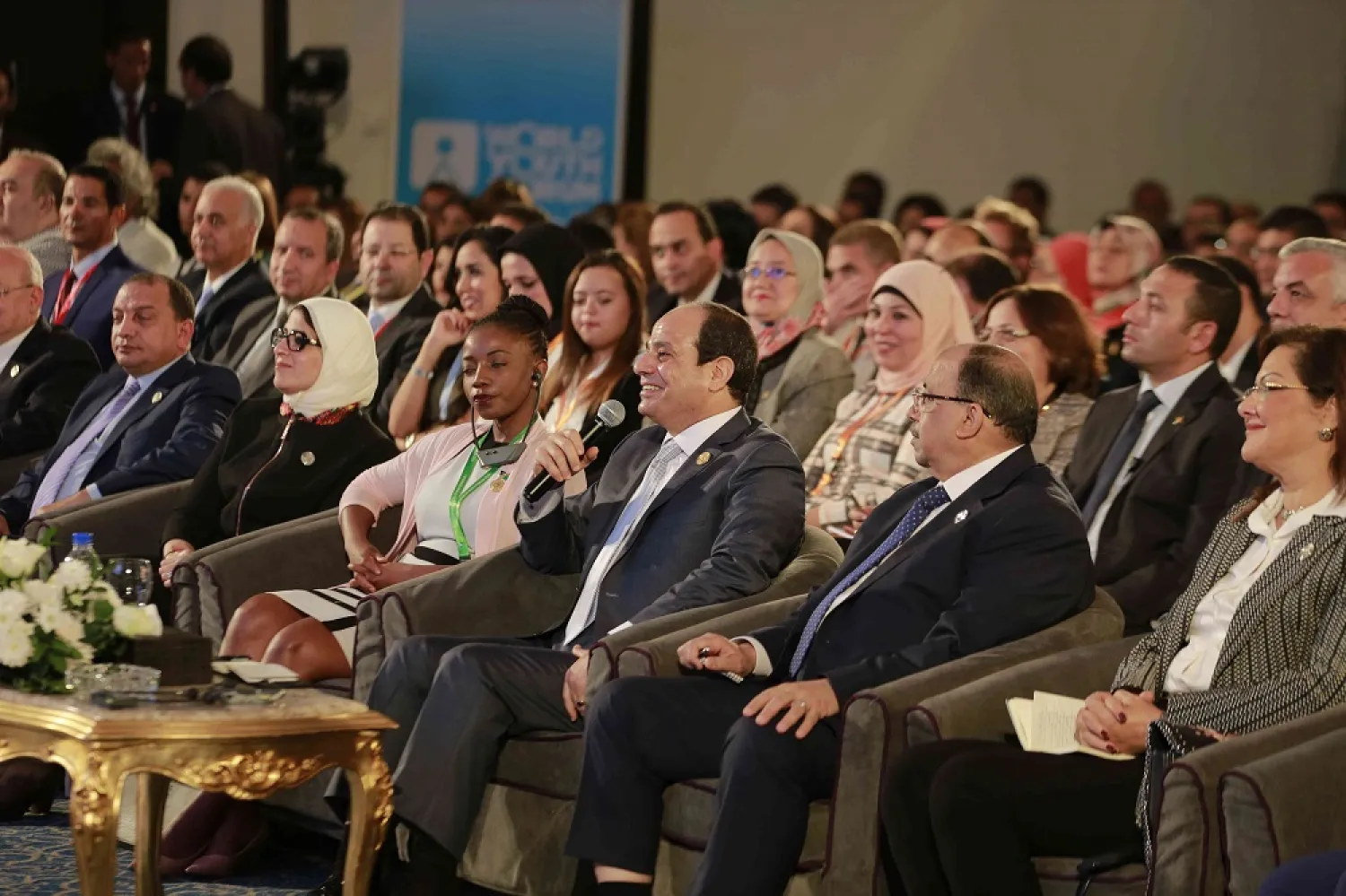Egypt's President Abdul Fattah al-Sisi will launch on Monday the fourth edition of the World Youth Forum (WYF), which was suspended over the past two years due to the coronavirus pandemic.
The Forum will be held between January 10 and 13 in the Red Sea tourist resort of Sharm El Sheikh and will be attended by Palestinian President Mahmoud Abbas, Jordan's Crown Prince Al-Hussein bin Abdullah II, a large number of politicians, diplomats, media professionals, and Arab and foreign youths.
The Forum held preparatory workshops over the past two days to discuss water scarcity as an urgent and multi-dimensional issue.
The sessions included presentations and proposals to overcome these global challenges.
Environmental Engineering Consultant and Vice-Chairman of the Board of the German International Cooperation (GIZ), Irene Eastmalik, reviewed several water problems worldwide, including the Aral Sea crisis.
During the workshop, Eastmalik praised Egypt in handling its water problems, including establishing canals, modern irrigation, and tertiary treatment at the Bahr al-Baqar water station and the Asfar Mountain station.
The Forum will focus on the coronavirus and the post-pandemic world and will review the United Nations Sustainable Development Goals (SDGs) 2030.
The main themes of the WYF are post-COVID impacts, climate change, social security, human rights, entrepreneurship, technology, 5G networks, digital transformation, distance learning, the environment, and the future of energy.
More than 500,000 young men and women from 196 countries have registered on the Forum's official website.
The Forum organizers announced that new methods preventive measures against Covid-19 would be adopted at the event. The unprecedented technologies include robots that sterilize the halls, measuring the participants' temperatures, and distribution of sterilization tools to the attendees.
A robot will distribute food and drinks to the attendees. Also, the organizers installed self-sterilization gates at the entrance to prevent any possible transmission of infection.
All precautionary and preventive measures are taken in cooperation with state agencies and specialized private sector companies to ensure the safety of all participants.
Meanwhile, the Palestinian President arrived in Sharm El Sheikh on Sunday to meet with his Egyptian counterpart for talks on the latest developments in the Palestinian arena and efforts to advance the peace process.
Abbas is accompanied by the head of the General Authority for Civil Affairs and Farah member, Minister Hussein al-Sheikh, Intelligence Chief, Major General Majed Faraj, and the Palestinian ambassador to Egypt Diab al-Louh.









